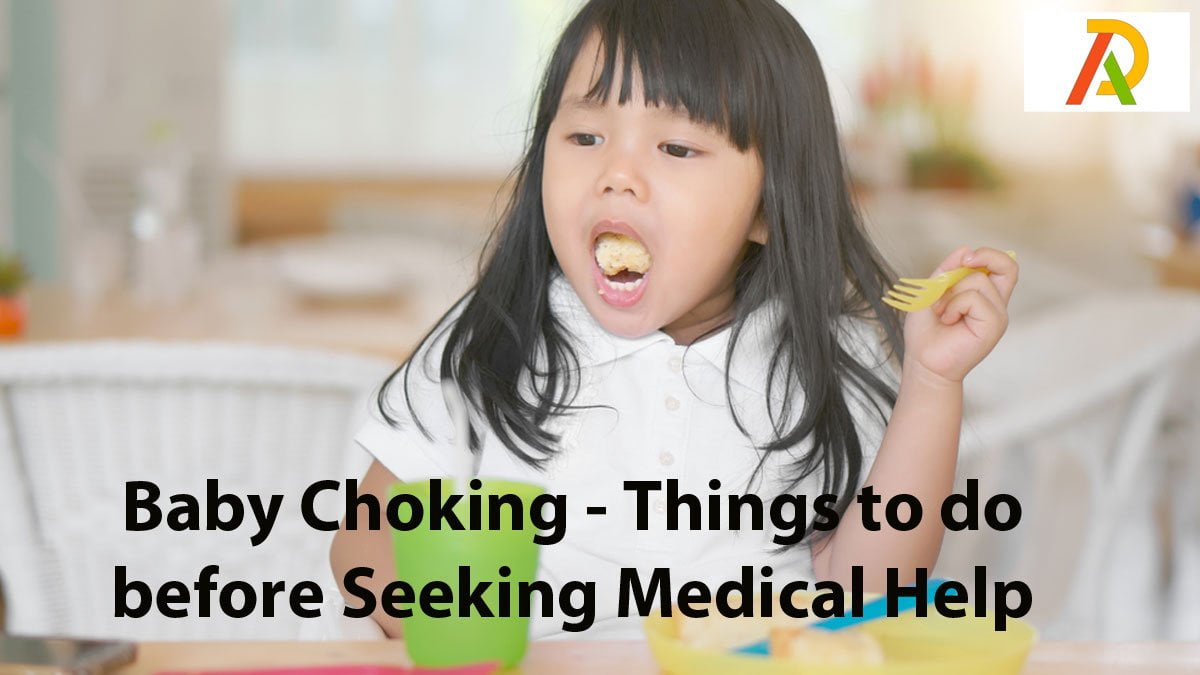Baby Choking – Things to do before Seeking Medical Help

Every year, about 3,800 children in the United States die from choking. Choking is the fourth leading cause of death in children aged 0 to 14. Many of these deaths could be prevented if parents and caregivers knew what to do when a child is choking.
How do you recognize choking from heavy coughing?
It could be a choking sign if your baby is having trouble breathing or making a high-pitched noise when coughing. Other signs include gasping for air, turning blue, or losing consciousness. If you suspect your baby is choking, call 911 immediately and start CPR if you are trained.
What do you do?
If your baby is choking, it is important to act quickly and calmly. First, try to dislodge the object blocking the airway using a finger sweep. If that does not work, call 911 and begin CPR.
What are common things babies choke on?
It’s not uncommon for parents to worry about their baby choking; after all, it’s one of the most dangerous things that can happen to a child. But what are common things babies choke on?
One of the most common things babies choke on is food. It’s important to be careful when feeding your baby and to cut food into small pieces. Avoid giving hard foods like nuts or popcorn, and watch out for sticky foods like candy.
Babies also choke on small objects like coins or beads. Keep small objects out of reach, and be careful when your baby is playing with toys. Inspect toys regularly to ensure they’re not broken or missing.
If your baby does start to choke, it’s important to act quickly. Try to dislodge the object if you can, but don’t put your fingers in your baby’s mouth. Call 911 immediately and start CPR if you’re trained if the object can’t be removed.
How can you prevent choking?
As a parent, you want to do everything possible to prevent your child from choking. Here are some tips:
1. Watch what your child is eating. Avoid hard candy and nuts, which are common choking hazards. Cut food into small pieces and supervise your child while they are eating.
2. Be aware of objects around the house that could be choking hazards. Keep small items out of reach, and don’t allow your child to play with them.
3. Know the Heimlich maneuver and how to perform it properly. This could potentially save your child’s life if they start to choke on something.
4. Always seek medical attention if your child has choked on something or has difficulty breathing. This is a potentially serious situation and should not be taken lightly.
When do you call 911?
If your baby is under one year old and starts to choke, it’s important to act fast. If the object blocking the airway is not removed, the baby’s brain can be damaged by a lack of oxygen.
If you see your baby choking, first try to dislodge the object by giving up to five back blows between the shoulder blades with the heel of your hand. Call 911 or your local emergency number immediately if that doesn’t work.
If the object is still blocking the airway after five back blows, turn the baby over so they are facing down on your forearm. Support the head with your hand and give up to five chest thrusts with two fingers in the center of the chest just below the nipple line.
If the object is still blocking the airway after five chest thrusts, call 911 or your local emergency number immediately. Do not leave the baby alone to go get help.


